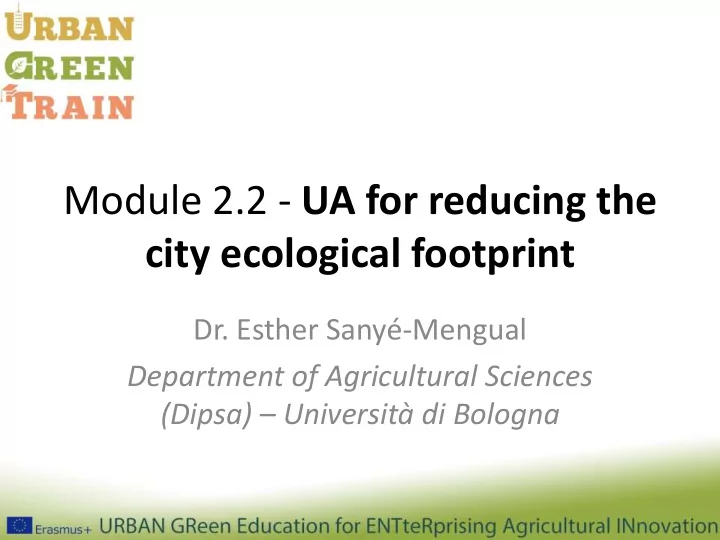

Module 2.2 - UA for reducing the city ecological footprint Dr. Esther Sanyé-Mengual Department of Agricultural Sciences (Dipsa) – Università di Bologna
Ecological footprint Ecological footprint “ the impact of human activities measured in terms of the area of biologically productive land and water required to produce the goods consumed and to assimilate the wastes generated” (WWF).
Environmental relevance of cities 80% Greenhouse gas emissions [3] 50% Population [2] 2,7% Surface [1] [1] UN (2007) Urban population, Development and the Environment. Department of Economic and Social Affairs. [2] UN (2008) World Urbanization Prospects: The 2007 Revision Population Database. [3] Ash C, Jasny BR, Roberts L, Stone R, Sugden A (2008) Reimagining cities - Introduction. Science 319(5864): 739-739.
Urban metabolism
Urban metabolism Outputs LINEAR METABOLISM Inputs (waste, (resources) emissions) Sustainability strategies - Reduce consumption - Minimize impacts - Self-sufficiency - Circular economy
Urban agriculture in the urban metabolism READ SECTIONS 1 AND 2 OF THE FOLLOWING ARTICLE: Goldstein, Benjamin, et al. "Urban versus conventional agriculture, taxonomy of resource profiles: a review." Agronomy for Sustainable Development 36.1 (2016): 1-19.
Module 2.2 - UA for reducing the city ecological footprint Dr. Esther Sanyé-Mengual Department of Agricultural Sciences (Dipsa) – Università di Bologna
Recommend
More recommend